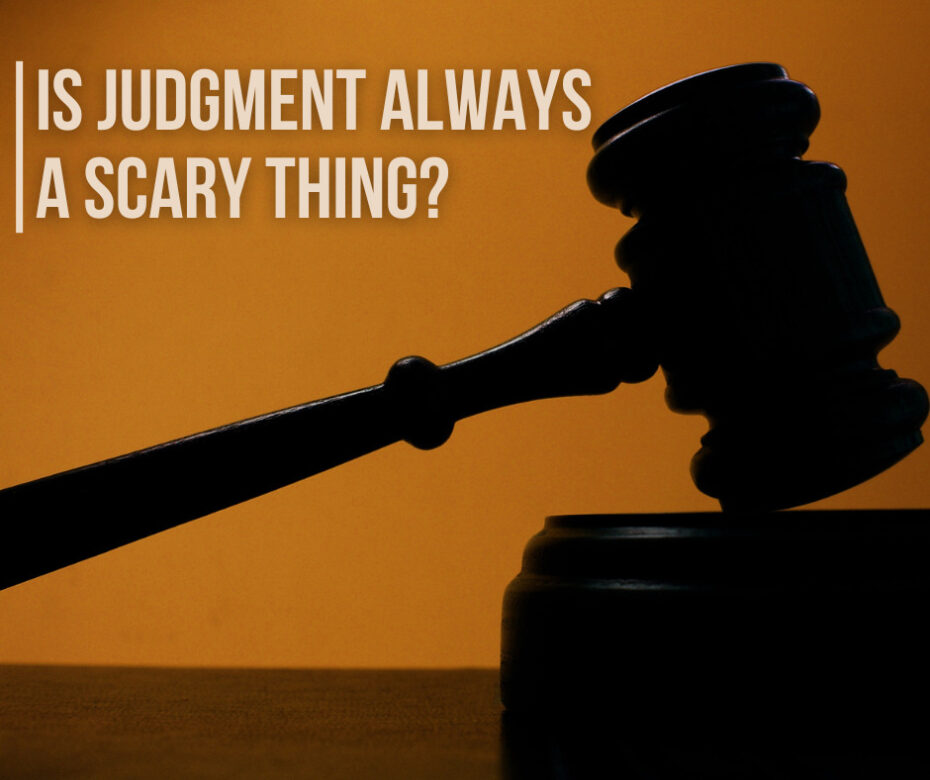The theme of the 2022 GES National Conference was “Final Judgments.” There were sessions covering the different judgments that will take place when the Lord returns. These include the Judgment Seat of Christ, the Great White Throne, the Judgment of the Sheep and Goats, and more. If you missed that conference, you can still hear the sessions here.
At the time, a good friend heard about the theme and commented that it’s a heavy topic and might be perceived negatively. Who wants to invite someone to a conference about judgment? I totally understand the concern. Many people experience fear and anxiety when they think of the “final judgment.” This can be especially true for those who do not understand the differences among the judgments mentioned above. It needs to be said that if you have believed in Jesus for eternal life, you will never be judged to determine your salvation (John 5:24), and you should never fear even the possibility of facing such a judgment.
That said, my friend got me to thinking about the topic of judgment and how believers should regard it. I would like to suggest that the topic, while certainly sobering, is also an encouraging doctrine that should give us hope. This is one application we can learn from the Book of Acts.
Judgment is a theme that runs throughout Acts. However, unlike the final judgments, the judgments in Acts were held before the assemblies of men and courtrooms. There are over fifteen judgments that take place in Acts. While the participants vary, Luke consistently builds his book’s narrative around these assemblies and judgments, starting in chapter four. Peter and John are brought before the Sanhedrin. This happens again in chapter 5. Stephen is tried and eventually sentenced to death in chapters 6–7. Paul stands before Gallio (ch 18), the Sanhedrin (ch 23), Felix (ch 24), Festus (ch 25:1ff), and Agrippa (ch 25:13ff), just to give a few examples. Luke even ends his book with the impending judgment of Paul before Caesar.
One lesson that can be taken from these accounts is that despite human opposition, the gospel was going out unhindered (Acts 28:31, for more on this see Bob Wilkin’s article here).
In addition, Luke interweaves a secondary theme into these accounts; he consistently gives us a glimpse into the corruption of these proceedings. He repeatedly provides the reader with information on what happened behind closed doors. The Sanhedrin, while knowing that the apostles’ healings were legitimate, still threatened them to be silent (4:16-18). False witnesses were brought against both Stephen and Paul (6:11; 16:20; 21:28-29). Felix wanted a bribe from Paul (24:26). When Paul went before Festus, the Jews sought to kill him (25:2-3). Murderous plots, false witnesses, the fear of men, or just plain indifference permeate each of these narratives. The judgment of men is consistently tainted by unrighteousness.
When we consider these accounts, it should not surprise us that the Apostle Paul makes this comment, in his letter to the Corinthians:
But with me it is a very small thing that I should be judged by you or by a human court. In fact, I do not even judge myself. For I know of nothing against myself, yet I am not justified by this; but He who judges me is the Lord. Therefore, judge nothing before the time, until the Lord comes, who will both bring to light the hidden things of darkness and reveal the counsels of the hearts. Then each one’s praise will come from God (1 Cor 4:3-5; emphasis added).
Paul writes these words on the heels of 1 Corinthians 3, where he discusses the Judgment Seat of Christ. Despite his mistreatment in the various judgments in Acts, Paul is unbothered by human courts. He is not concerned because he knows two things. First, everything that is said behind closed doors will one day be revealed. Second, a Judge is coming who will set everything right.
This is an encouraging perspective. We live in times similar to those of the apostles. As we consider the state of the world and see the corruption and evil of our day, it’s not hard to see the parallels to our own courtrooms. For many, it’s reason to despair. In a time when Justice has taken off her blindfold and is easily swayed for political gain, it’s easy to find oneself without hope. That is when we need to be reminded of the final judgments and be encouraged. That is when we need to be reminded that human courts are small and insignificant compared to what is to come. We have a Judge who is coming, and He is good and impartial. He sees the hidden thoughts of men. He cannot be bribed, threatened, or flattered into submission. He is perfectly just and will set everything right.
We should celebrate that our King and Judge are coming. While it is sobering, it is also a teaching that brings hope. It is good news that we should proclaim to the world (Rev 14:6-7).

